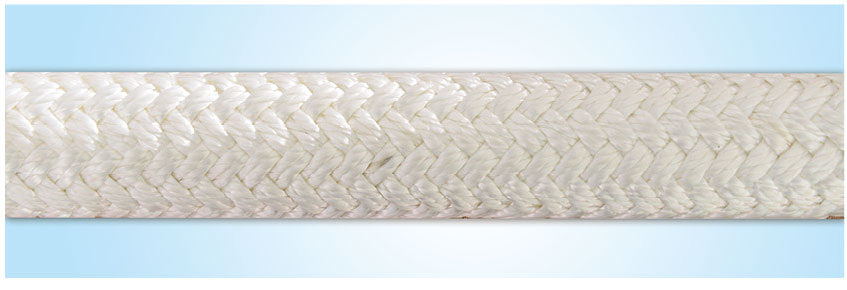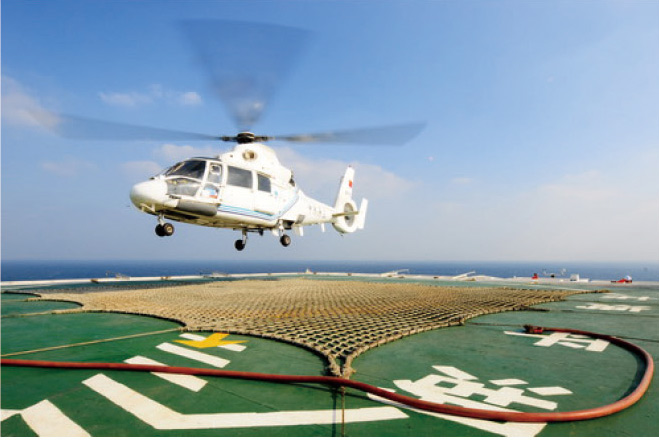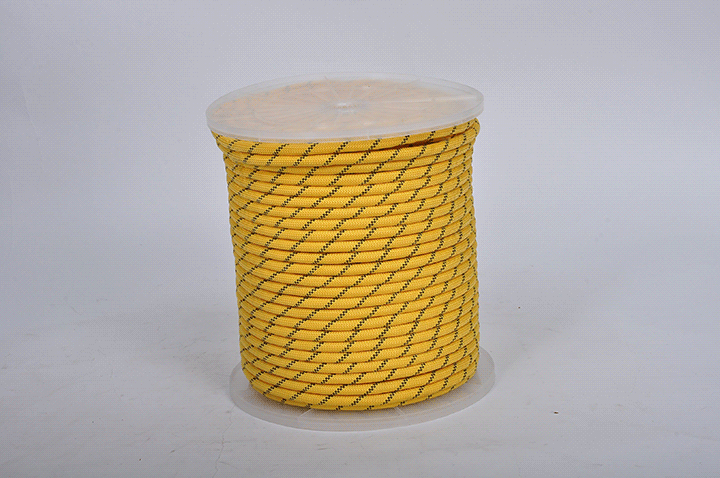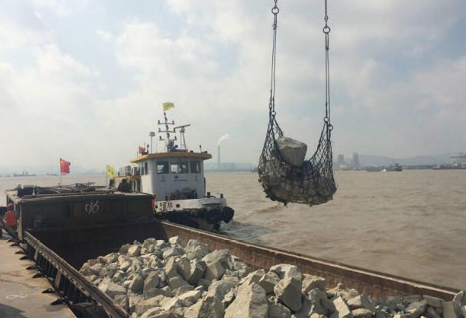- Flame retardant safety rope
- 3-strand rope
- Braided rope
- 8-strand and 12-strand mooring rope
- Uhmwpe mooring rope
- Aramid fiber rope
- Double fiber braided mooring rope of polyester and polyolefin
- Double braided mooring rope
- High strength mooring rope
- Static rope(Technical rope / Hoisting rope)
- Dynamic mountaineering rope
- High strength synthetic rope
- Yacht rope
- Para cord
- Water rescue rope
- Chemical fiber net
- High-strength polypropylene fiber

- Mobile:0086-18954383066
- Tel :0086-543-5838899
- E-mail:admin@htyarn.com
- Fax :0086-543-2236199
- Address :Binzhou Huimin County Li Zhuangzhen Bridge Road East, Li Chaoyang Road South
Mooring ropes are ultra-high-strength fixed ropes woven from high-modulus/high-strength man-made fibers. They are up to several kilometers long and are as thick as a person's thighs and can withstand breaking loads in excess of 1,000 tons.
The technologies related to offshore oil exploration must meet the requirements of various extreme conditions. Of all the materials, the fact that "the strength of synthetic fibers is the greatest" sounds ridiculous. However, they have solved one of the most difficult challenges in offshore oil production, with results far exceeding steel. For example, the so-called FPSO (floating production, storage and transportation) vessels are usually converted oil tankers, which process and store oil crude oil from nearby oil drilling rigs, and are finally collected and stored by oil tankers. These floating platforms work in deep waters and are very demanding against storms. Under these conditions, the preconditions for wire ropes are not sufficient: In sea areas deeper than 300 m in depth, the ropes become heavy enough to carry the load. In addition, steel cables cannot cope with harsh working conditions.
3000 m long mooring ropes
In contrast, special ropes made of high-strength synthetic fibers have many advantages, such as corrosion resistance, no maintenance, UV resistance, and to a certain extent buoyancy, and can handle almost all negative effects in the marine environment. Most importantly, they have the same good performance as steel ropes, but their weight is only a fraction of that of steel ropes. The deepest of these mooring lines can be used underwater 3 000 m. The standard cable diameter is 200 mm and weighs approximately 26-28 kg/m. In order to achieve the required length, two or more 1 000 m long mooring lines are usually connected.
Polyester fibres with high strength, high modulus/low elongation are proven to be the perfect base material for the production of such super ropes. They have high strength with minimal weight, very low tensile strength loads between 20% and 50%, and are therefore very suitable for fixed platforms. Polyester is extremely durable even under extreme conditions and is a cost-effective solution.
Uses over 2000 t of yarn per platform
However, the material is not the only factor that determines the performance of the finished cable. The processing method is also very important. This is a special subject technology that is mastered by different manufacturers. Mooring ropes usually consist of 7 to 12 braid cores, which are twisted together by various methods. These cores are bound together by a protective sleeve also made of high-strength polyester fibers to obtain the highest strength. At the same time, the yarn itself can be treated with "marine oil agent", which is an oily mixture of wax oil and silicone oil, making it resistant to seawater and abrasion resistance. This is a very sensible measure considering the mutual friction between fibers and the wear caused by rough objects around the ropes.
This helps the production of wear-resisting ropes, so that the breaking load can reach the commonly required 1 250 tons and above. Approximately 24 000 to 120 000 t of floating production, storage and offloading (FPSO) platforms require 24 such mooring lines. Therefore, a platform requires at least 2 000 t of polyester yarn. These requirements provide yarn manufacturers with market potential.
In 2016, the January issue of Offshore magazine estimated that there are currently 169 FPSO platforms in use in the world. Most of them are located on the east coast of Brazil, the Gulf of Mexico, the west coast of Africa, or the North Sea. “And this figure will continue to increase: the leader in FPSO platform Petrobras Petroleum plans to install more than 40 new platforms in the next five years, mainly for the recently discovered ultra-deep water and sub-salt fields. I estimate that The total polyester demand for mooring lines is approximately 20,000 tons per year,” said Milton B. Bastos of MBB Enterprises. MBB Enterprises, located in Florida, USA, specializes in providing consulting services on the manufacture of polyester yarns for mooring cables. With 15 years of industry experience, MBB Enterprises is a partner for the independent development and distribution of related high-end yarns. Polyester filaments are not only developed using Oerlikon Barmag's technology, Bastos estimated: "Globally, most of these specialty yarns are produced using Oerlikon Barmag machines."
Oerlikon Barmag Technology: Production of the best yarn for mooring ropes
The reason why Oerlikon Barmag's machines are used to produce specialty yarns for mooring cables is for good reason. Its system technology can efficiently produce high-performance mooring lines. The installed nozzles have a filtering function to increase the throughput. The powerful godet roller series has a high tensile force. In addition, and most importantly, the high-performance, high-frequency heating device of the godet system ensures uniform heating of the yarn. The optimized spinning wire here can heat the fiber bundle from both sides. According to different filament formation methods, it is possible to form filaments with a high titer - up to 6 600 dtex. All in all, this technology can produce high denier filaments with high strength, low elongation, low creep and high denier.
- The characteristics and advantag
- Operation analysis of China's in
- The structural characteristics o
- In the first half of 2024, the e
- Hengfeng three strand rope profe
- The operation of the textile ind
- Hengfeng flame retardant safety
- Textile industry to cultivate an
- Aramid cable - Hengfeng Direct s
- An overview of the textile indus






